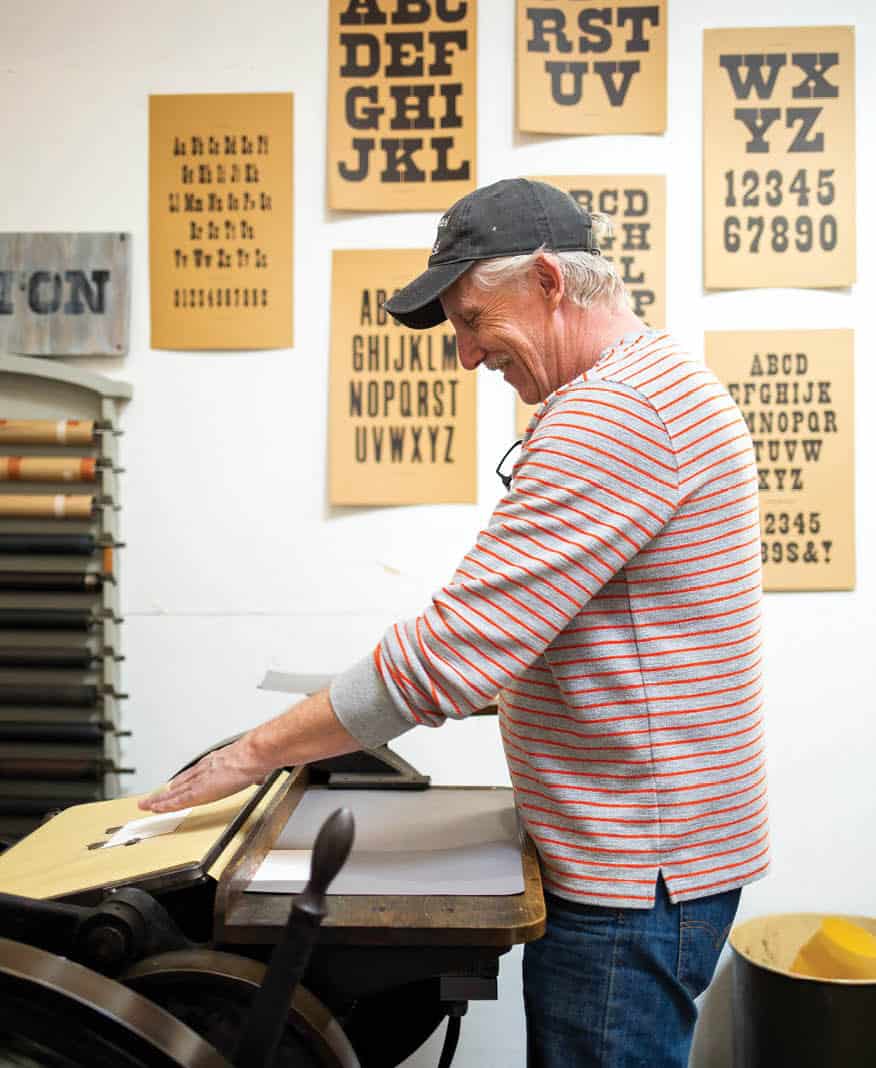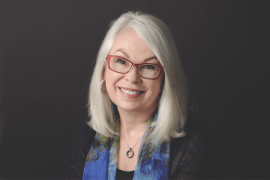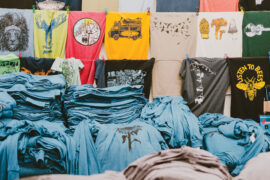written by Catie Joyce-Bulay
photography by Terray Sylvester
On the outside, Yakima Valley’s Mighty Tieton looks like an abandoned warehouse. Its name hangs above a mustard-colored door not quite covering the previous owner’s sign. The deep blue mosaic T, surrounded by cheery yellow, is the only hint that inside, this artisan business incubator is aflutter with creative energy.
In one studio, a young woman glues tiny blue glass tiles onto a large, paper-covered easel. The tiles will eventually form a large-scale replica of an old apple crate label destined for display downtown as part of a National Endowment for the Arts-funded project. The room around her, encased in shiny silver insulation, is a rainbow of mosaics made by the fledgling Tieton Mosaic.
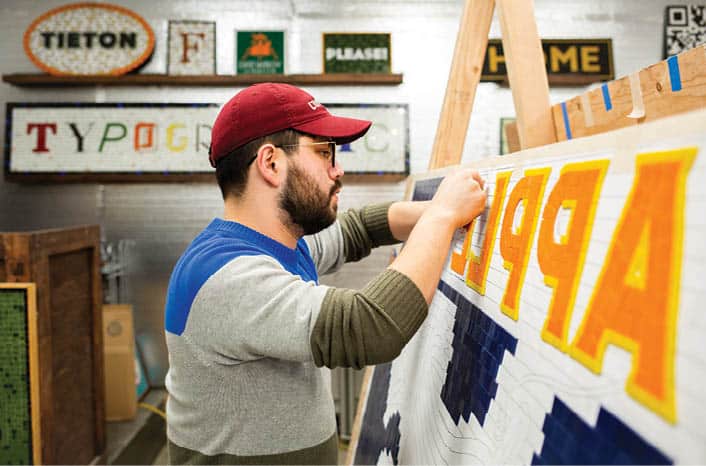
At the other end of the 40,000-square-foot former apple packing warehouse is Paper Hammer Studios, where most of the clever cards and paper goods in its Seattle storefront are handmade on silk screens and antique letterpresses.
Tucked between an industrial-meets-rustic events space and art gallery is Trimpin Sound Space, a kaleidoscope of both color and sound, where Seattle’s renowned sound artist Trimpin tinkers on projects and houses his Dr. Seuss-like collection of musical sculptures.
Behind another rolling wood-plank door is Goathead Press, run by artist Karen Quint, who rents out the space to other artists and uses it to make her woodblock and copper etching prints inspired by the surrounding hills, valley and sky.
The name of the press is a nod to the goat-head shaped thorns that started it all for Mighty Tieton owner Ed Marquand. One day in 2005, Marquand, a Seattle fine arts book publisher who has a cabin nearby, decided to ride his bike into Tieton. He popped both tires on goatheads and spent the day repairing the tires in the town center’s park. While doing so, he noticed he was surrounded on all sides by abandoned storefronts, which sparked an idea.


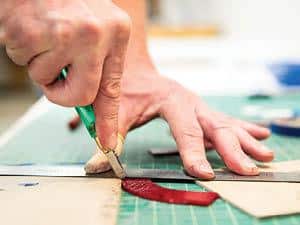
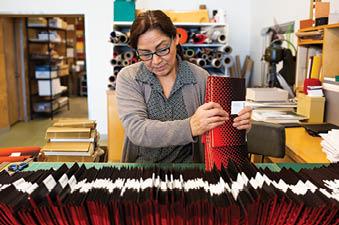
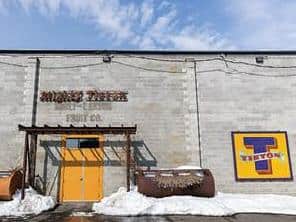
He spent that summer inviting creative friends from Seattle to sit in the grassy park and brainstorm potential businesses to fill the spaces, which led to buying up several of the abandoned buildings. In 2007, he turned one—a warehouse closed since 1992—into loft-style condominiums. Next, he converted the neighboring warehouse into Mighty Tieton, where both private studios and those under the Mighty Tieton umbrella continue to evolve and thrive.
It’s impossible to talk about Mighty Tieton without also talking about the community. Marquand, who blends artistic inspiration with business savvy, saw early that Tieton, a town of roughly 1,200 surrounded by apple orchards in upper Yakima Valley, had affordability and proximity to Seattle going for it. What it lacked, in the aftermath of its agricultural heyday, was jobs.
“Our business model is hands-across-the-Cascades, so our creative ideas and clientele are in Seattle and the people who create it and design it live here and get the benefit of that,” said Marquand, who resides in downtown Seattle, but spends about three-quarters of his time in Tieton.
“The space was what attracted us in the first place, but once we started these businesses it became very evident that it’s the quality of the people who are here,” he said. “Every day they’re here they get better and better at doing something that is really high-level craftsmanship and consistency.”
Take Maria Solorio. Formerly a cashier manager in a bank in Mexico, she now manages the book bindery of Marquand Editions, which creates high-end handmade art books. “Maria’s been with me for twelve years now and she’d never bound a book when she started working for us, but now she’s really one of the best production book binders in the country,” Marquand said.
Solorio, who lives in nearby Cowiche, said she has enjoyed every aspect of her job since the first day.
Then there’s Steve Morgan. He was laid off from a seasonal job with an irrigation company, saw an opening at Tieton Mosaic and, without any professional art background, six years later is lead artist of the mosaic studio and runs Paper Hammer’s letterpress. Some days he also drives a forklift in the shipping department, because all of Mighty Tieton’s eighteen employees are cross-trained in each business.
“I believe that creative people have much more economic savvy and potential than people give them credit for,” said Marquand while sitting at a family-style table in 617, a chic tapas bar he’s installed in one of the abandoned buildings. The tapas bar acts as both a community space and a draw for visitors. “I also think people like that can be plugged into other social problems or situations and might bring different perspective to very familiar problems—in this case, how do small towns stay relevant? How do they continue to exist?”


